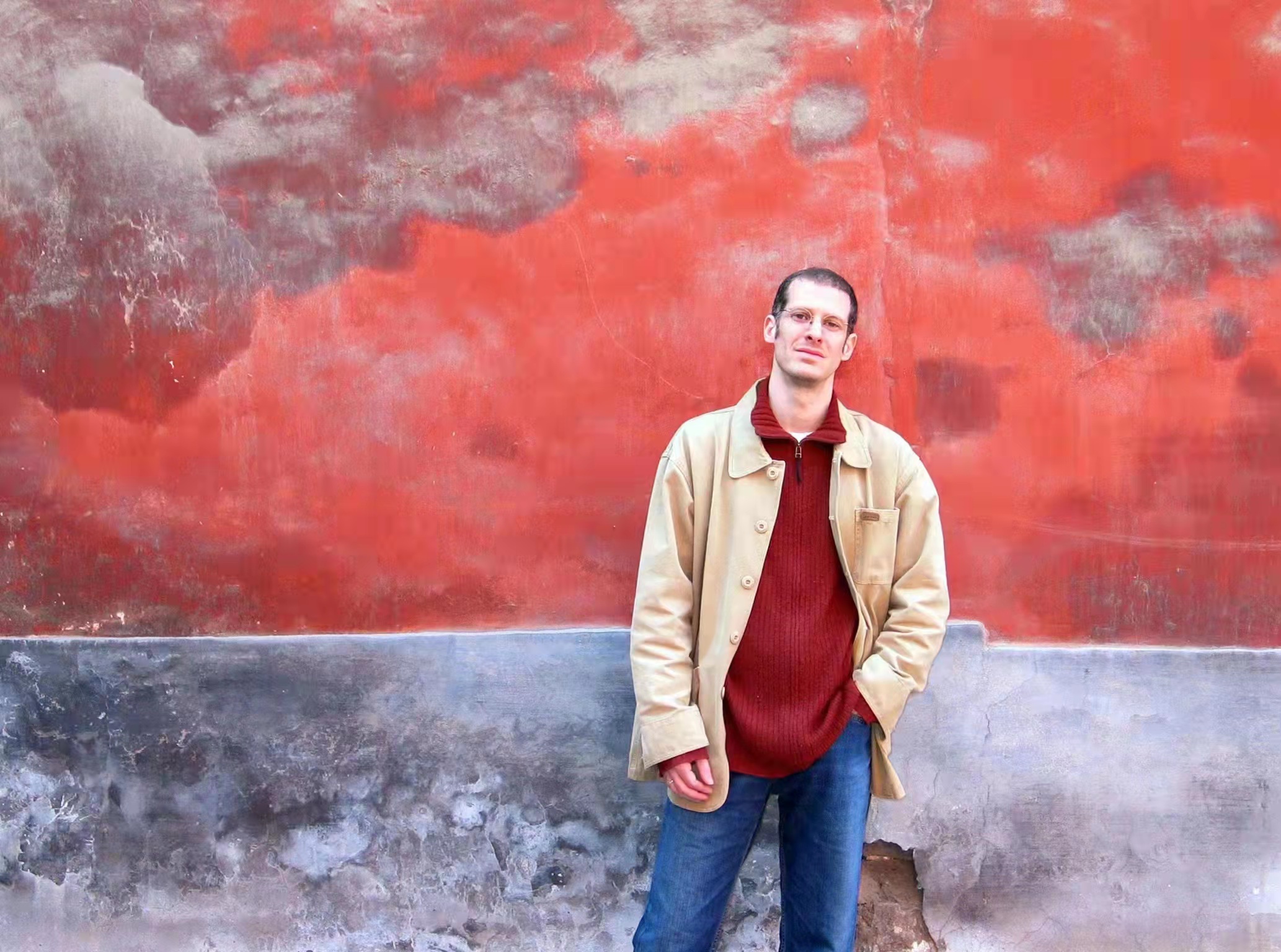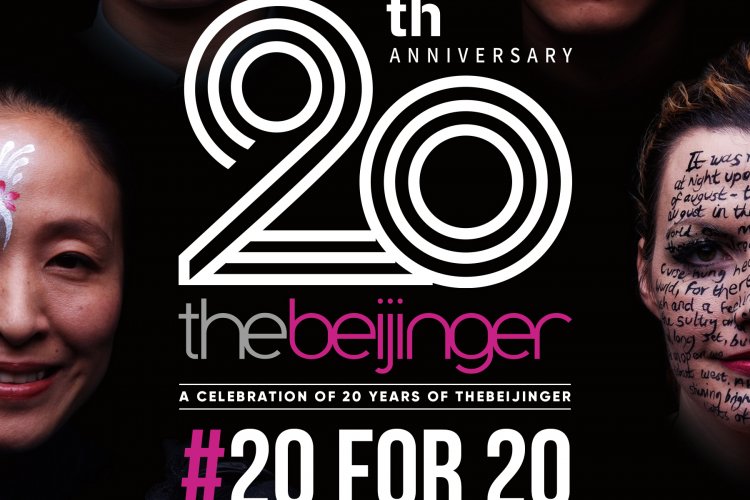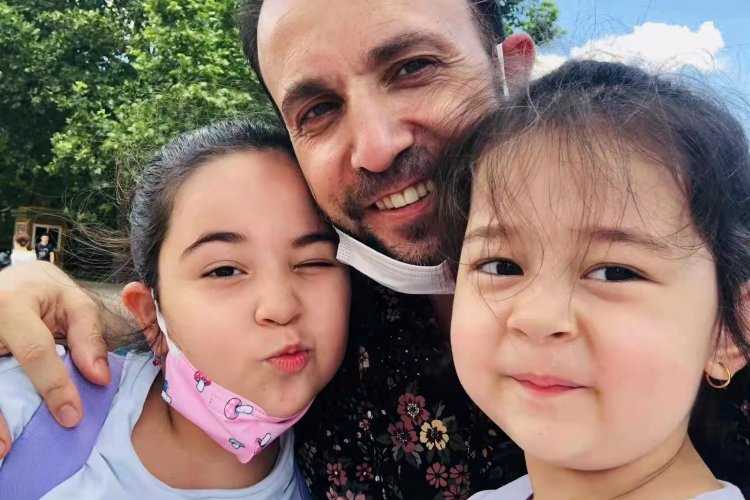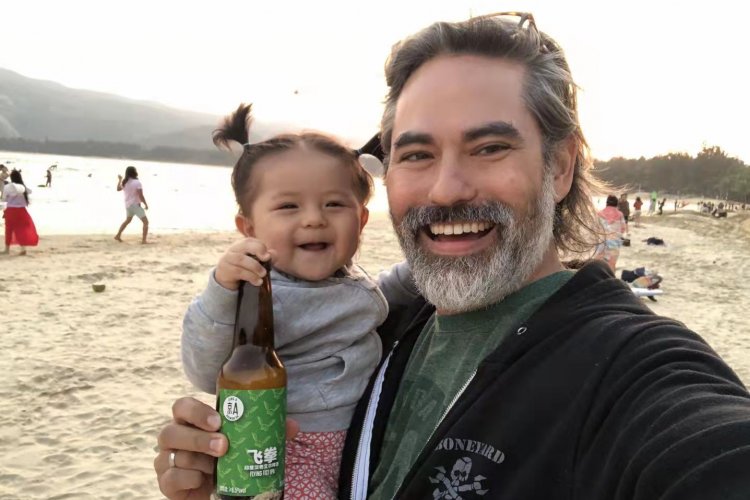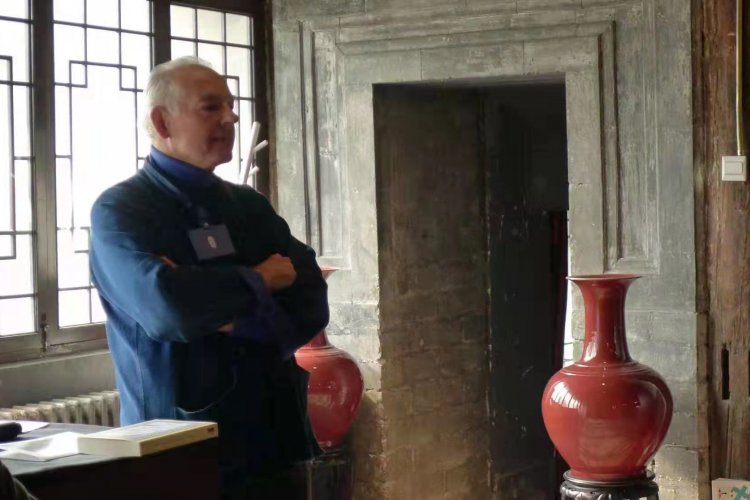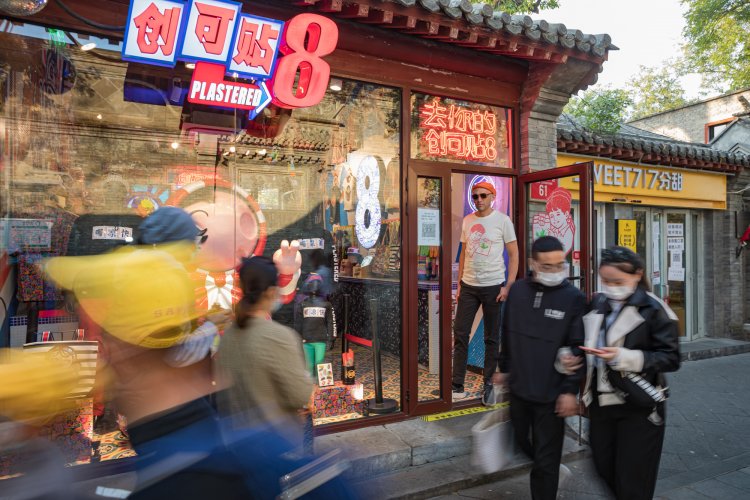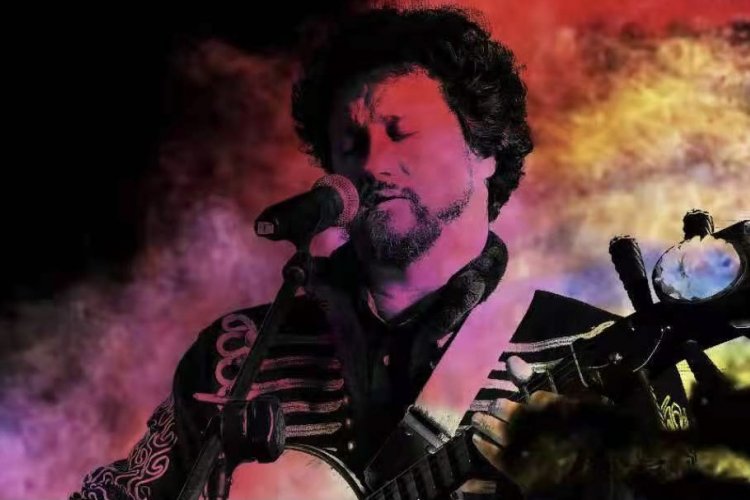20 for 20: American Artist Michael Cherney
As we continue our celebration of 20 years of The Beijinger, we’re taking a closer look at some of the expats who have been here for two decades and those who have had an oversized impact during their stay.
The list of accomplishments, achievements, and prestigious places in which this mostly self-taught photographer, artist, and internationally minded man has and continues to have are as vast and diverse as the amazing country he has called home for so long; and yet in still when asked about his work, he says, “I'm still learning, still barely scratching the surface, still trying to truly understand what I am experiencing!”
Michael Cherney comes from Jewish lineage, was born in New York, and has been based in Beijing since 1991. Over the years has gained the esteem of art intellectuals around the world. Qiu Mai is his Chinese name, and he continues to pave the way for foreign artists in China. And though he probably won’t mind if you call him Michael Cherney or Qiu Mai, when it comes to art it seems that he sticks with a decidedly Eastern approach. A notable international art expert, Don J. Cohn, said of Cherney, “Cherney is unique among Western artists working entirely, and convincingly, in the Chinese milieu.” And even though he is American, Jerome Silbergeld from Princeton University says, “One would be hard-pressed to find a ‘more Chinese’ artist than Qiu Mai.”
Though Michael has chosen a more Eastern aesthetic to express his art, he believes that though Chinese and Western art each have their own characteristics, they are not mutually exclusive; they each can inspire anyone! When I asked him if there was a moment that stood out most in impacting his career, he replied, “It’s a journey,” and equally saw the importance of moments like his first show ever being at the MET (The Metropolitan Museum of Art) in New York, and the many little things that happen along the way as well.
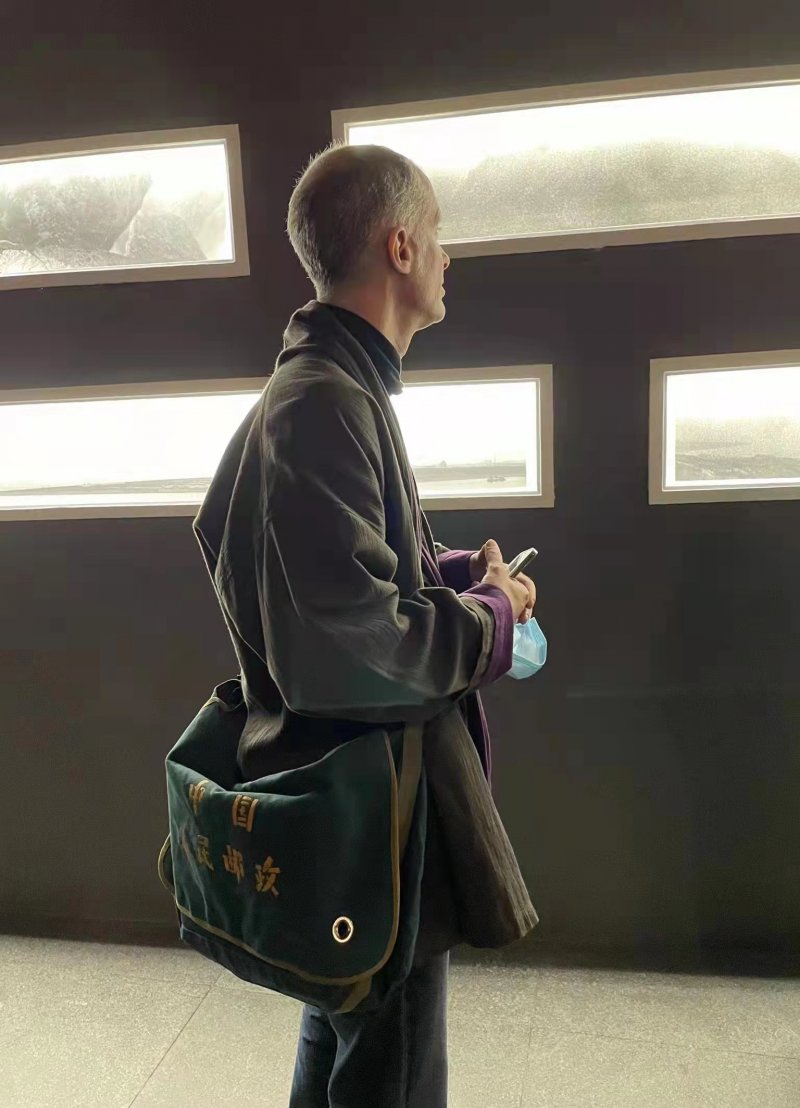
What brought you to Beijing, and when?
I grew up in New York. My father ran a small trading company, so there was a regular stream of visitors from East Asia regularly staying at our home. This inspired me to get an undergraduate degree in East Asian Studies (also in New York, plus a couple of summers in Taipei). I then came to Beijing in the Fall of 1991 to begin graduate school, and developed a passion for Chinese language, history, culture, and art.
What were some of your first impressions of the city?
That it was going to take time to truly understand what I was experiencing here. From my studies I knew of Beijing to be an amalgamation of ancient history combined with a recent history of confronting difficult challenges. From my daily life I was surrounded by people who, though they had little material comforts, quickly welcomed me as an intimate part of their lives. Conditions at home were very basic so people spent much time out in their neighborhood or community. There was less work pressure, so life moved at a slower pace.
Did you imagine at that time that you’d still be here more than 20 years later?
I was too young to have any clear sense of the future, but it was very possible to imagine remaining long-term, as one felt to be part of a collective mission at a pivotal time for China.
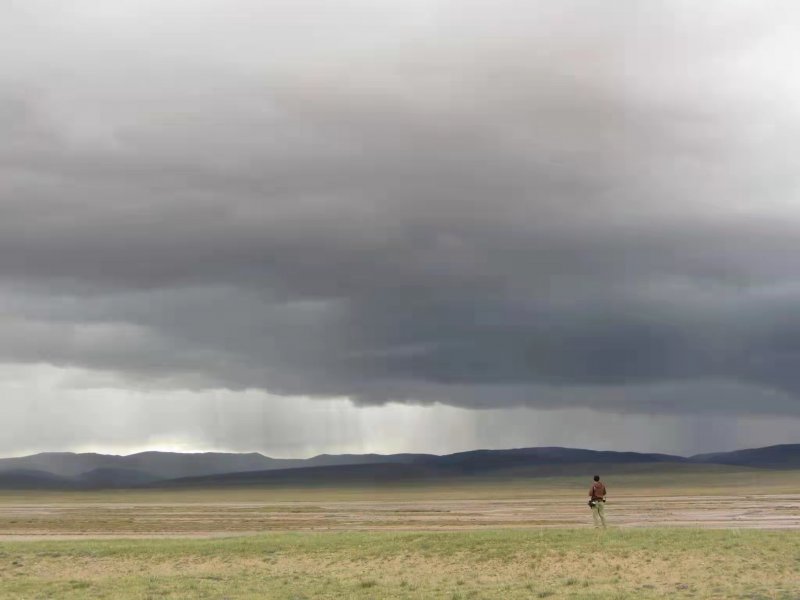
Can you tell us about one of your quintessential first experiences in the city?
Well, meeting Huang Dong (who would eventually become my wife) on the train heading to the Gubeikou section of the Great Wall, which at the time was not easy to access, and after only having been in Beijing for less than two months was quite quintessential! It was the October 1 holiday, and I was taking the trip together with several classmates and friends. Dong and a couple of her friends were in the same train car, so our two groups joined up. After arriving after dark only to realize the Wall to still be quite far from the train station, the only truck driver in a nearby village gave us a ride in the back of his truck to a spot on the Wall where it was possible to climb up. We slept in a very cold watchtower, and the light of the sunrise brought my first ever view of the Great Wall.
What’s changed the most since you first arrived?
Efficiency and the standard of living. The material differences are very hard to fully convey to those who have not experienced the transformation directly (even more so for those who have been here even longer than me). I am sometimes a bit nostalgic for some of the old neighborhoods and street life, with yogurt or drink sellers recycling the bottles as soon as you were finished with them, or craftspeople repairing things rather than having to dispose of them. But the essence of the city and people are still ever-present.
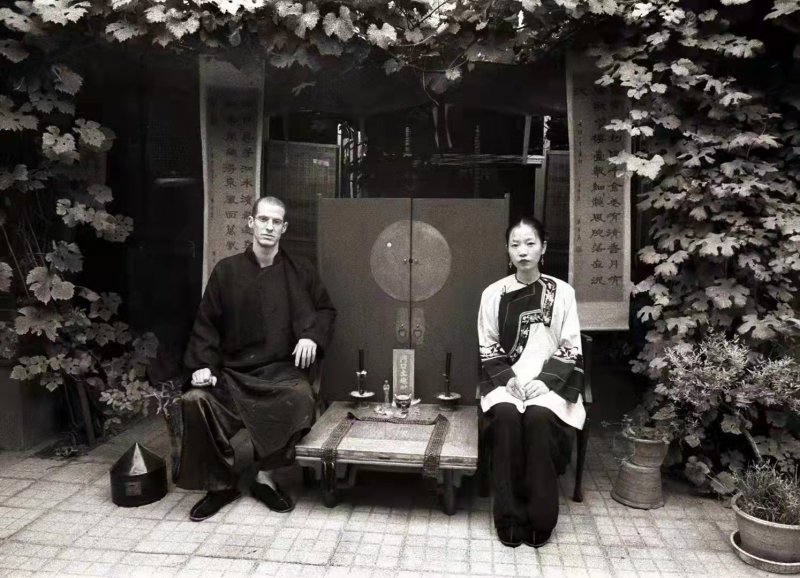
How do you think Beijing has changed you as a person?
This has been home as my life has unfolded. My wife and my first true home together, the birth and growth of our daughter, the development of my art … all have been centered here.
What are your main reasons why Beijing continues to be a draw for you to this day?
I use Beijing as a jumping off point to travel all around China for photography. The materials for creating my art and the experts who mount it are here. Our circle of friends here are from all around China and the world. And because this is Beijing, those in the field of Chinese art all visit here sooner or later! Over the decades I continue to feel that same sense of kinship; that mission of contributing to a pivotal moment in history.
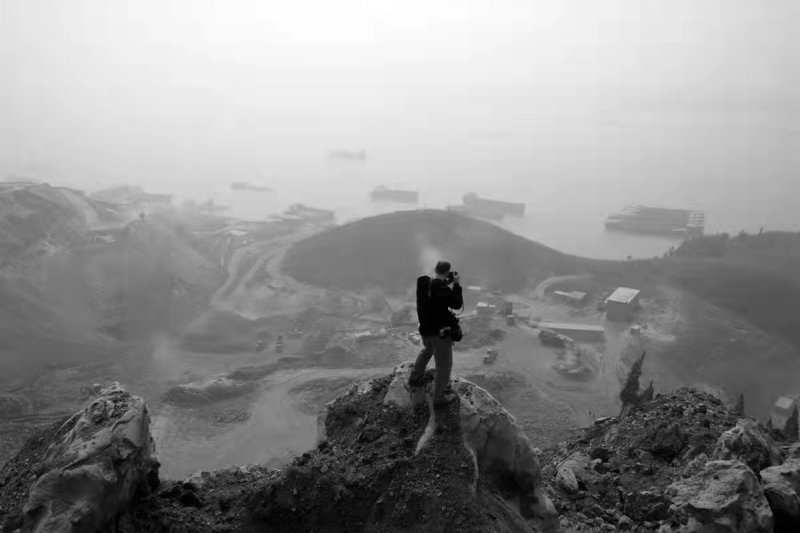
Name your three favorite places in the city?
1) I always love taking newly printed art to the mounters to become an album or scroll, as it is usually the final stage of a very long creation process; and connecting to traditional mounting materials is always very grounding.
2) Enjoying the seasonal changes at the Temple of Heaven.
3) With Covid sometimes limiting travel to other parts of China, we have come to love the nature in the mountains around Beijing; I grew up in a forest so feel it to be very important to take breaks from the big metropolis.
What’s one piece of advice you have for relatively recent arrivals?
It has become too easy to live a life detached from others. Learn to speak, read, and—yes—write Chinese. Have as much local interaction as possible. And whenever possible travel around the country (and not only famous tourist sites); it is fascinating…and vast.
READ: 20 for 20: Renowned Chef Renaat Morel of Morel's
Images courtesy of Michael Cherney

